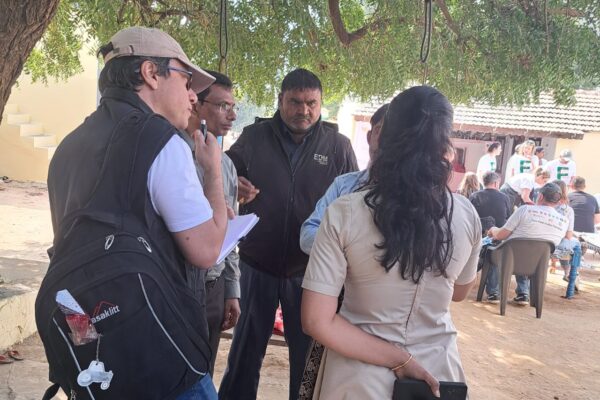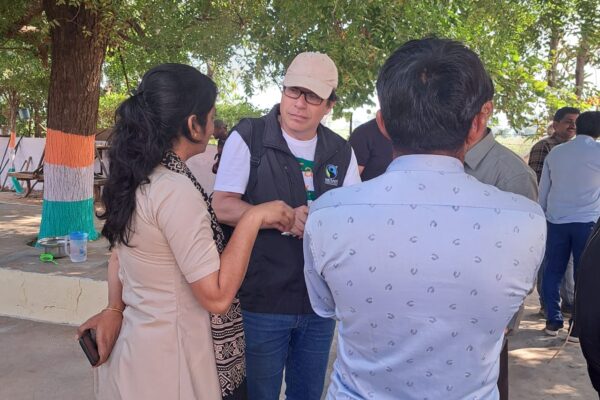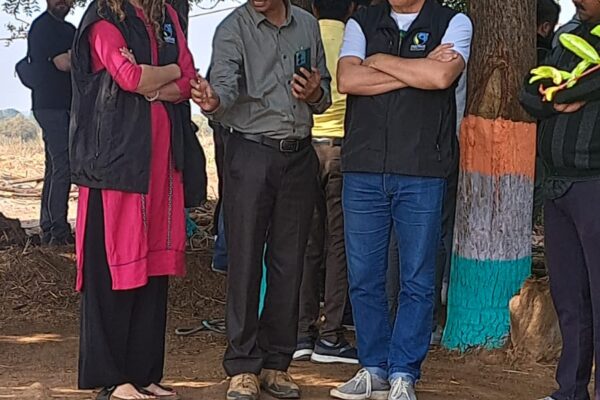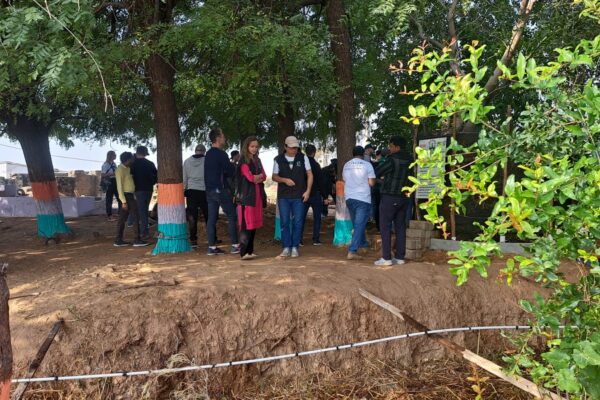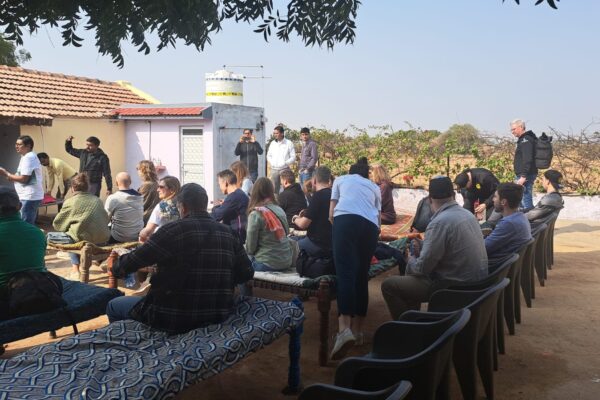On the road in northern India with eight football clubs, you can see how the effect of Fairtrade unfolds locally. As part of the #FromFieldToFanshop project, the cotton farmers of Fairtrade certified producer organisation-Rapar & Dhrangadhra Farmers Producer Co. (RDFC) in the state of Gujarat are being supported in switching to organic cotton.
Pics: The visit of Brands fashion and Fairtrade Germany team to Gujarat supported by Fairtrade NAPP team
The ‘Field to Fanshop’ Project initiative was launched by the Bundesministerium für wirtschaftliche Zusammenarbeit und Entwicklung (BMZ) together with the textile company BRANDS Fashion GmbH and is implemented through Deutsche Gesellschaft für Internationale Zusammenarbeit GmbH with local partners. Over the next three years, the Project will support 450 smallholder farmers in India in converting to organic cotton cultivation from 2022-2025.
The initiative includes nine football clubs from the 1st and 2nd German Bundesliga, which are jointly committed to sustainability in the field of #Fanartikel. In addition to the 1. FC Union Berlin, DSC Arminia Bielefeld, Eintracht Frankfurt, Hamburger Sportverein, SV Werder Bremen GmbH & Co KG aA, VfB Stuttgart and VfL Wolfsburg, Borussia Dortmund and FC St. Pauli von 1910 e.V. have recently joined the alliance. The clubs undertake to purchase cotton for the production of their merchandise.
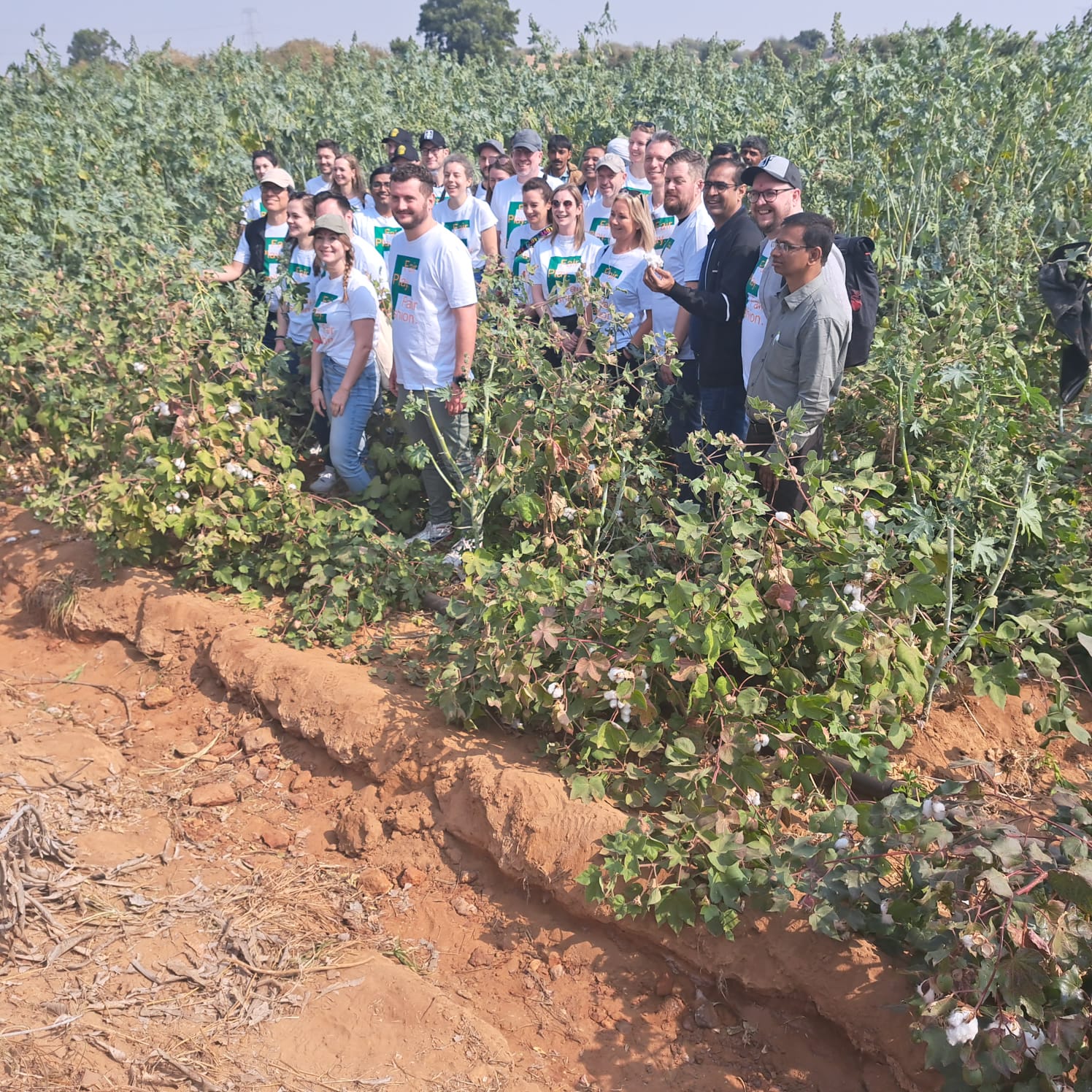
Good news for the fans! The first merchandise garments ( joggers, sweaters, t-shirts, baby rompers and bags) will be on the market in summer 2023. The whole supply chain is based in India.
While the conversion of infertile soil to organic is difficult and yields initially decline, the cooperative is supported through capacity-building workshops, training, and advice from Fairtrade NAPP. In addition to the old techniques, there are new, innovative methods such as composting plant and water management.
Due to the push to organic cotton, the entire production of the farm also becomes organic – including the vegetables that are eaten locally. As the soils become more fertile, they can also absorb and hold more water – this is important in terms of climate, as the last season was again much too dry.


